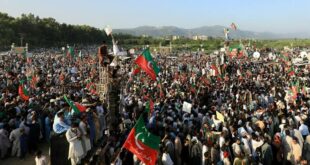by Prof. Dr. Aalia Sohail Khan
Former Vice Chancellor Rawalpindi University
1971 and Distortion of History
What is history? It is supposedly a collection of facts about the course of events, the significance of which impacts the collective consciousness of a nation. It is assumed that a study of history helps to analyze and interpret the past in order to give direction to the way forward. It is the moral responsibility of the historians to untangle the web of events, to bring to light the hidden, foreground the causes and effects, thereby providing tools and strategies to learn from the mistakes made in the past and avoid repeating the same mistakes. Working in this way, the cold objectivity of factual information acquires a humane dimension and function. Regrettably this noble function is seldom performed.
History, as it is recorded, is usually a conglomeration of half-truths, fabricated truths, blatant lies, falsification, exaggeration or distortion of facts. Historiography, that is, the art of writing history, has emerged as a separate discipline distinct from the discipline ‘History’ and it studies how history is written to serve different vested interests. It can become a tool to serve partisan interests, a particular ideology or manifesto. It becomes instrumental in promoting perspectives conducive to engender biased perceptions, manufacturing both positive and negative stereotypes, generating not only divisive but hate narratives, provoking national, racial, religious and ethnic polarization and resentment. Edward Hallett Carr’s essay “The Historian and His Facts” (1987) advises the students of history that they must first read the historian before the historical facts. It is an important prerequisite considering the the various misuses of history. History is never neutral.
The manipulation of facts explains why different theories of history have emerged, advocating a particular point of view to achieve specific objectives and goals. The stipulated ends determine the ways of writing history. This argument is supported by examining the conceptual frameworks of historians within which history is written. For example, Hegel’s notion that history begins with the Western civilization is an arrogant slashing of the entire bulk of Eastern civilizations – Chinese, Hindu, Buddhist, Persian and Muslim civilizations, to name a few. The erasing of the history of these civilizations is a part of the colonial project of the “White Man’s Burden” that justified the exploitation of non-white people as a mission to civilize people who were contemptuously labelled by Kipling as “sullen peoples, Half-devil and half child.” Likewise, the heliotropic concept of history, that is, civilizations make westward movement supported the Western hegemony and the concept of superiority of the Western races that are destined to rule the world.
Arnold Toynbee, who was once acknowledged as a great historian, is now seen as more of a moralist, who driven by the aspiration to pull the English nation out of the pervasive despair into which it had plunged after successive defeats by the Axis Powers, the military coalition led by Germany, Italy and Japan, during World War II wrote the voluminous “A Study of History”. It was also writing back to Spengler’s pessimistic view of history that was based on the contention that cultures, like all other organisms, have a birth, they grow, decay and ultimately and inevitably they die. Toynbee argued that civilizations do not die automatically and inevitably. Their destruction is resultant upon assault from outside and disruption from within. He asserted with conviction that the Christian Western Civilization will be triumphant on the basis of its moral superiority and all other civilizations will be assimilated into it as they have already adopted the Western ways of thinking, Western political, administrative and judicial systems, dresses, food, ways of living. Sir Mohammad Iqbal’s view of history is a repudiation of these pseudo views of history and he presents a cyclic view of history to give hope to the demoralized Muslims of Indo-Pak Sub-Continent. In a similar view, the Irish poet, W. B. Yeats creates an eccentric view of history to serve a similar purpose of giving hope to the subjugated Irish people. He writes that every civilization has a time span of its own and within the dominant civilization is implied and weakly present another civilization.
The deliberate and concerted maneuvers by one country along the twisted corridors of history transform the heroes of another country into bandits and assassins. Frantz Fannon writes in his book “The Wretched of the Earth” that belittling the heroic figures and stripping them of their dignity and nobility renders two – fold psychological damage to a country’s psyche and its morale; its confidence is undermined and its self – esteem is lowered.
A neologism that became current during the Corona pandemic was ‘Infodemic’. It is a blending of two words – information and pandemic and it means profusion of information, disinformation, inaccurate and misleading information, rumors, falsification of facts. Amid the plethora of information disseminated from different sources, it becomes difficult rather impossible to sift fact from fiction. The greatest harm that it causes other than clouding reason and biasing perception, is that it hinders the process of finding solutions. We are confronted with a similar situation in our beloved country these days. The pathetic uncertainty about the political situation that Pakistan is mired in these days has triggered a blame game against Pakistan Army.
There is a barrage of unexamined allegations against Pakistan Army’s action in 1971 in the erstwhile East Pakistan. Whenever partisanship prevails over patriotism, the process of cutting off the nose to spite the face begins. Such unverified statements not only damage national solidarity, they also blur the picture, and obstruct the solution finding process, be it bettering of the relationship between Pakistan and Bangladesh, or the reform in the political or judicial system or reforms in army.
It is an unthoughtful, non-critical attempt to charge and malign Army with crimes that it did not commit, these baseless accusations reflect ignorance, lack of awareness and understanding of the complexity of the events that engulfed the erstwhile East Pakistan and what actually happened there.
Creation of Bangladesh is shrouded in multiple myths that were concocted by India to justify its aggression, its malafide intent to dismember Pakistan, to humiliate and lower the morale of Pakistani people. Lies were manufactured as a propaganda strategy to tarnish the heroic and moral courage of Pakistan Army that fought like gladiators in erstwhile East Pakistan.
The Indian General Sam Manekshaw openly praised the courage of Pakistan Army and further dismissed the charge of war crimes committed by Pakistan Army as gross exaggeration. Sharmila Boss, an Indian research scholar of Bengali origin writes categorically in ‘Dead Reckoning’, her book on the East Pakistan debacle that her research on the tragedy of East Pakistan exploded the myth that she had been brought up on, that is, the myth that Pakistan Army was guilty of murders and rapes of Bengalis. On the other hand, she gives gruesome details of the mass massacre of non-Bengalis by the Mukti Bahnis. There was planned and systematic genocide of Biharis, West Pakistanis, and even Bengalis who stood loyal to the ideology of Pakistan. Brig. Karar Agha’s book ‘Witness to Carnage 1971’ gives harrowing details of merciless butchering and sadistic rape of non-Bengalis. Saleem Mansoor’s book ‘Albadar’ pens the blood-curdling atrocities that were inflicted by the Muktis upon pro – Pakistani Bengalis. Qutbuddin Aziz’s book ‘Blood and Tears’ is another blood-curdling and eye opening account of 170 witnesses of the massacre and genocide of more than half a million non-Bengalis and pro Pakistanis. Regrettably this genocide is a forgotten chapter of our history. Dr. Abdul Munim Chawdry, a Bangali scholar has given numerous evidences and statistics in his book, “Behind the Myth of 3 Million” to expose the fallacious charges against Pakistan Army. He writes that the moral indignation was created and raised to the level of a national lore to demonize the Pakistan Army. The objective was to overstate, exaggerate own successes, hide its tyranny and build a revisionist myth of independence. That Pakistan Army helped the Bengalis in distress is demonstrated with compassion and respect by Brig. Saad Ullah Khan in his book ‘East Pakistan to Bangladesh’ and Brig. Sultan in his book ‘The Stolen Victory’. Dr. Junaid in his well-researched book ‘ Creation of Bangladesh: Exploding Myths’ gives references to describe the carnage of non-Bengalis. Similarly, Afrasiab’s “1971:Fact and Fiction” and Hali’s book ‘Tormented Truth 1971 and Beyond’ brings to light atrocities committed by the Mukties. These and many other are the voices that must be heard and the world must pay attention. This is not an issue of insignificance, for not only truth is at stake, this is irreverence to the innocent people whose blood was spilled and who were tortured to death. Silence on crimes against humanity unleashes and strengthens cruelty. Rabindra Nath Tagore said where one drop of innocent blood is shed thousand crimes take place.
What General Douglas MacArthur said about the performance of the American Army in wars in his farewell address to West Point Cadets in 1962 can rightly be said about the valour and moral courage of Pakistan Army in 1971. He said that the American soldier served with “that enduring fortitude, that patriotic self-abnegation and invincible determination which have carved his status on the hearts of his people…he has drained deep the chalice of courage…[he has emerged as] not only one of the finest military character but also as one of the most stainless’.
 Pride News Daily NEWS
Pride News Daily NEWS





